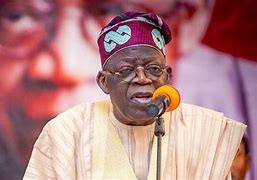
In a significant policy shift, Nigeria’s newly elected President Bola Ahmed Tinubu has declared his government’s decision to unify the exchange rate, replacing the previous multiple exchange rate regime implemented during the administration of former President Buhari by the central bank.
President Tinubu highlighted the importance of a unified exchange rate and emphasized the need to redirect funds from arbitrage toward meaningful investments.
Additionally, he called for a reduction in interest rates, describing the current rates as detrimental to both the people and businesses in Nigeria.
“The central bank must work towards a unified exchange rate…they should direct the fund from arbitrage to meaningful investment”
“Interest rates need to come down, currently too high, anti-people, anti-business, we have to work on all of those”
These policy announcements were made during his inaugural speech on May 29th, 2023, signaling a fresh approach to economic governance in the country.
President Tinubu’s decision to unify the exchange rate reflects a departure from the multiple exchange rate system that was in place during the previous administration.
The multiple exchange rate regime often led to disparities and inefficiencies, creating opportunities for arbitrage and hindering the growth of the economy.
By implementing a unified exchange rate, President Tinubu aims to streamline the foreign exchange market and reduce distortions, thereby attracting more investments and boosting economic stability.
The unification of the exchange rate is expected to enhance transparency and create a level playing field for businesses operating in Nigeria.
It will simplify transactions, eliminate complexities associated with multiple exchange rates, and provide a more accurate reflection of the true value of the Nigerian currency, the naira.
This move is likely to improve investor confidence, attract foreign direct investment, and promote economic growth in the long term.

